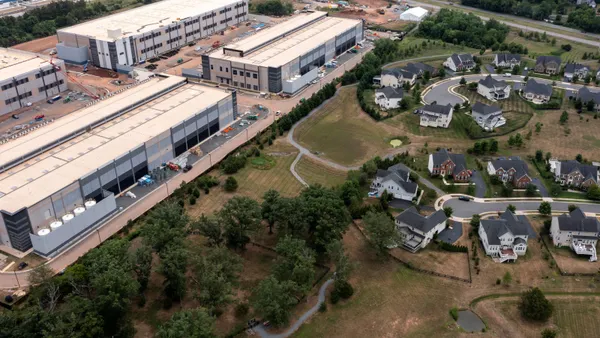Dive Brief:
- The U.S. Environmental Protection Agency's new emissions mandates give the option of using a mass-based target, which Argus reports could give states in the Northeast an incentive to join the Regional Greenhouse Gas Initiative.
- While the compact has been politically sensitive in some states, the nine participating RGGI states likely have an easy path towards compliance with the Clean Power Plan.
- Some changes to RGGI are anticipated given the new emissions rules, but a recent report showed all participating states' economies have seen improvement since the compact began and the region as a whole gained $2.76 billion in value added.
Dive Insight:
Flexibility built into the Clean Power Plan will give some states an incentive to consider joining the Northeast's Regional Greenhouse Gas Initiative, as the nine-state compact's emissions trading is a natural fit with mass-based approaches allowed under the EPA's plan.
"There are elements in the final plan that provide a lot of flexibility to states, and the EPA is looking for ways to facilitate state participation in mass-based trading," RGGI Chair Katie Dykes told Argus. The RGGI states in 2030 will have a CO2 budget of about 81 milllion short tons — only about 7 million lower than they've already bdgeted.
The Obama administration this week unveiled the final rule, calling for cutting greenhouse gas emissions by 32% by 2030, relative to 2005 levels. The final rule calls for deeper cuts than the proposed rule did, but also allows states two more years to begin showing results, in 2022.
A recent report from the Acadia Center showed the the Regional Greenhouse Gas Initiative is a “natural fit” and has helped to push down emissions, reduce electricity prices and boost the region's economy. Acadia concluded that last year emissions fell 5% below the regional cap, and electricity prices are down 2% since the initiative's start. Overall, states taking part in the initiative have seen three times the emissions reductions of other states, and 3% additional economic growth.
Despite that, participation has been a political issue in some states. New Jersey Gov. Chris Christie (R) pulled his state out of the program in 2011, though Democrats are pushing for him to reconsider. Pennsylvania's Democratic Gov. Tom Wolf has indicated he is open to joining RGGI.













